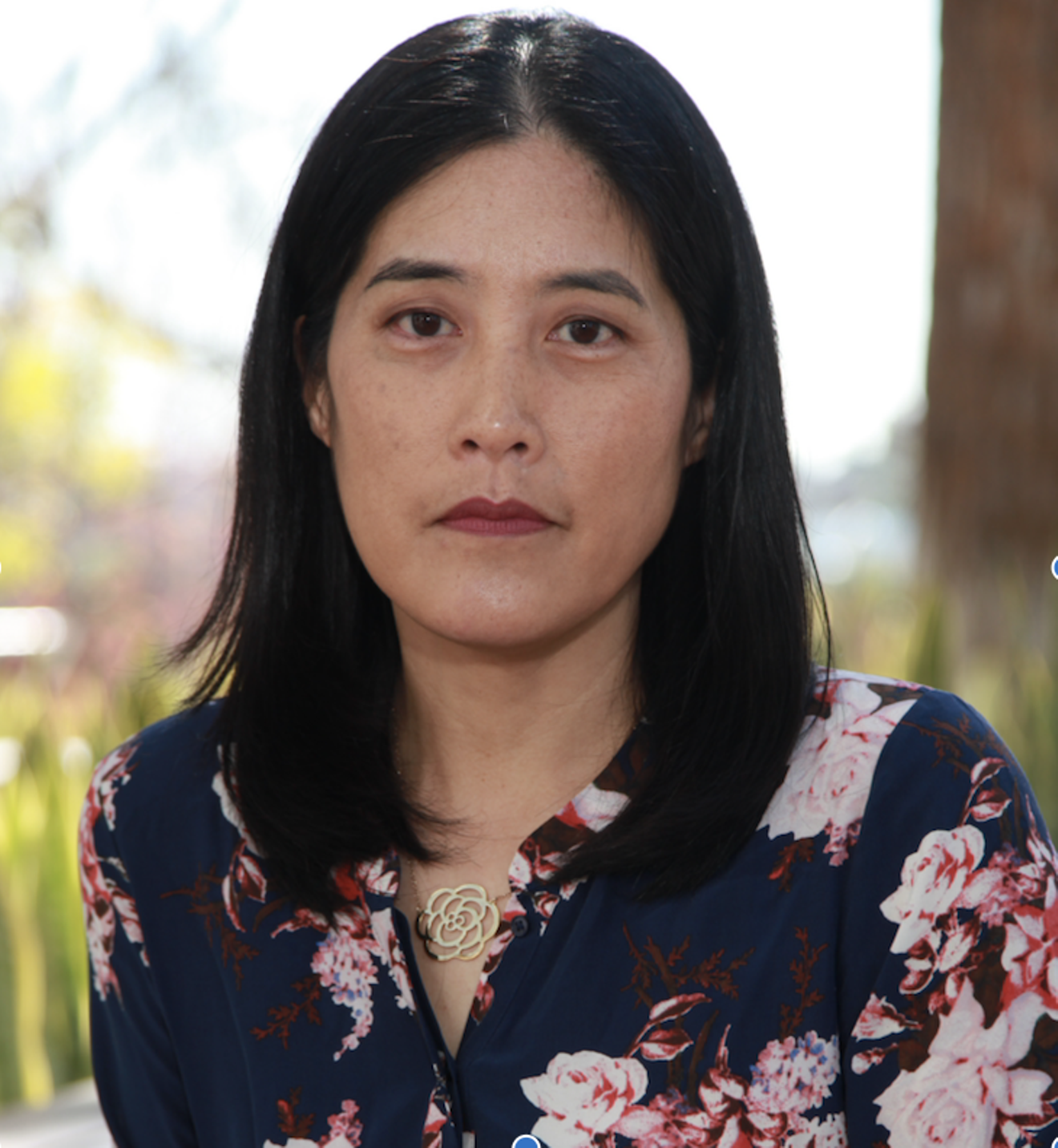Poet Victoria Chang’s newest collection is called Barbie Chang, a mashup of the classic Mattel toy and her own surname, creating a protagonist's voice that can draw freely from both personal experience and cultural significance. Chang’s earlier works have won acclaim; her 2013 book, The Boss, earned both a PEN Center USA Literary Award and a California Book Award. She has a new collection, OBIT, coming from Copper Canyon Press in 2020.
Ahead of her March 7 reading at the University of Colorado Denver’s Creative Writing program on the Auraria campus, Chang spoke with us about her work, her last book, and some of the things that drive her.
Westword: You're reading from your newest collection, Barbie Chang, as part of the CU Denver Creative Writing Reading Series; you also serve as contributing editor for [CU Denver literary journal] Copper Nickel and judged the 2017 Jake Adam York Prize for Poetry. Can you talk a little about your connection to CU Denver, and what it means to read there specifically?
Victoria Chang: Jake Adam York [a former professor at CU Denver] was a friend of mine. But not just any friend. He was the kind of friend who you just knew was one of the good ones. Quality. I visited a bunch of years ago when JAY invited me, and I got to spend a lot of time with him one-on-one and among the community. It's a special place, and he's a special human being. His death was very sudden, and I didn't get the chance to get to know him better or to say goodbye. I think about him often and wish I could talk to him. It's a strange thing, but I often think about him and another poet friend — Cody Todd — who passed, and try to live in a way that I think would make them both proud.
Tell us about the protagonist, Barbie Chang. How close is she to your experience? This feels like a very personal journey, even if the character herself is a construct.
I wrote all those poems as first-person poems and then changed them to third person when the character popped into my head. And then I had more fun constructing the persona, so it's based on my experiences, sprinkle in some other people's experiences and some made-up experiences. A mishmash. Even my own experiences aren't uniform. I'd feel all sorts of emotions that might change in one day anyway.
You have a recurring Mr. Darcy character in the book, which of course comes from Jane Austen’s Pride and Prejudice. Why him?
Because all those poems were talking about real people that occurred in my dreams when I was pregnant. Strange things happen when one is pregnant. I wanted to mask those names and poems because I didn't want the real people to know.
But why Darcy specifically? Why choose him as the iconic-dreamboat character to act as a stand-in for those people whose identities you wanted to mask?
Why not? I sometimes think this art-making we do is too serious.
There’s a wide range of tone in Barbie Chang, from pieces about maternal loss to “Barbie Chang Loves Evites.” From a writing perspective, how tough is it to balance the light and the heavy, the bright and the dark? Or do you need both in a collection like this in order to make the narrative voice full-throated?
I think there's a lot of stuff in this book because a lot of things were happening in my many lives. I'm many people — aren't we all? Also, I pulled in old "Dear P." poems in the middle of the book from another manuscript and then wrote more new "Dear P." poems at the end. So it's a hot mess. A lot like my brain and my life.
Whose idea was it to use all the doll legs on the cover of the book? It’s a striking image, and a wonderful match to the satirical and pointed commentary between the covers. What, specifically, did you hope it would suggest?
Copper Canyon Press has several designers they work with, of which one is Phil Kovacevich. He picked them, and I'm not particularly micro-managing — with anything, but particularly design — so I picked the one I liked best.
Were you a big Barbie fan, growing up in Detroit in the 1970s? What influences from your childhood do you still see in your work? What were your favorite toys back in those halcyon days of plastic and cartoons limited to Saturday morning?
I played with Barbies all growing up. I made up stories with them. I cut off the hair of one of them, and he became the male Barbie and made up various narratives all the time. One of my favorite things to do growing up — that, and watching Scooby-Doo.
Ah, Scooby-Doo. So here are the two eternal questions from any fan of the cartoon: To which character did you most relate? And didn’t the late-run addition of Scrappy-Doo pretty much ruin the whole thing? He’s like the Cousin Oliver of the Hanna-Barbera world.
Velma, for sure. There's a little bit of Shaggy in me, too. I don't remember Scrappy-Doo, because maybe by then I had moved on. But when I asked everyone around me, they all hated Scrappy-Doo!
Last year, you had this great line in an interview you did with Kenyon Review: “Grief is the only infinite thing that I’ve known.” I love that thought, but then I think: That can’t be true, can it? Aren’t there other infinities that you experience?
Not really. Most of my feelings wane. Love. Hate. Happiness. Anger, Sentimentality. Frustration. Exhaustion. Elation. Energy. They all come and all go. But grief, it’s always here, and I see no end, just a reshaping of it.
Is that grief the driver for your next book, OBIT? Tell us a little about that book, how it came to be, and what you want it to address.
Absolutely. That book is all about distilling grief after my mom passed. I had a lot of time to think about grief before she died, too; my mom had been sick for a long time. And my dad had a stroke about ten years ago that left him essentially dead in mind but not in body. So by the time my mom died in 2015, I had had a lot of time to subconsciously think about grief. They're poems in the shape of obituaries.
So what keeps you writing?
I have no idea. It's the way I sort through the world and my place in it. I wouldn't know how to live otherwise. I get to think when I write, and I enjoy thinking, a lot.
Poet Victoria Chang will read at 6:30 p.m. Thursday, March 7, in Tivoli 640 on the Auraria campus as part of the CU Denver Creative Writing Reading Series.
[
{
"name": "Air - MediumRectangle - Inline Content - Mobile Display Size",
"component": "12017618",
"insertPoint": "2",
"requiredCountToDisplay": "2"
},{
"name": "Editor Picks",
"component": "17242653",
"insertPoint": "4",
"requiredCountToDisplay": "1"
},{
"name": "Inline Links",
"component": "18838239",
"insertPoint": "8th",
"startingPoint": 8,
"requiredCountToDisplay": "7",
"maxInsertions": 25
},{
"name": "Air - MediumRectangle - Combo - Inline Content",
"component": "17261320",
"insertPoint": "8th",
"startingPoint": 8,
"requiredCountToDisplay": "7",
"maxInsertions": 25
},{
"name": "Inline Links",
"component": "18838239",
"insertPoint": "8th",
"startingPoint": 12,
"requiredCountToDisplay": "11",
"maxInsertions": 25
},{
"name": "Air - Leaderboard Tower - Combo - Inline Content",
"component": "17261321",
"insertPoint": "8th",
"startingPoint": 12,
"requiredCountToDisplay": "11",
"maxInsertions": 25
}
]













